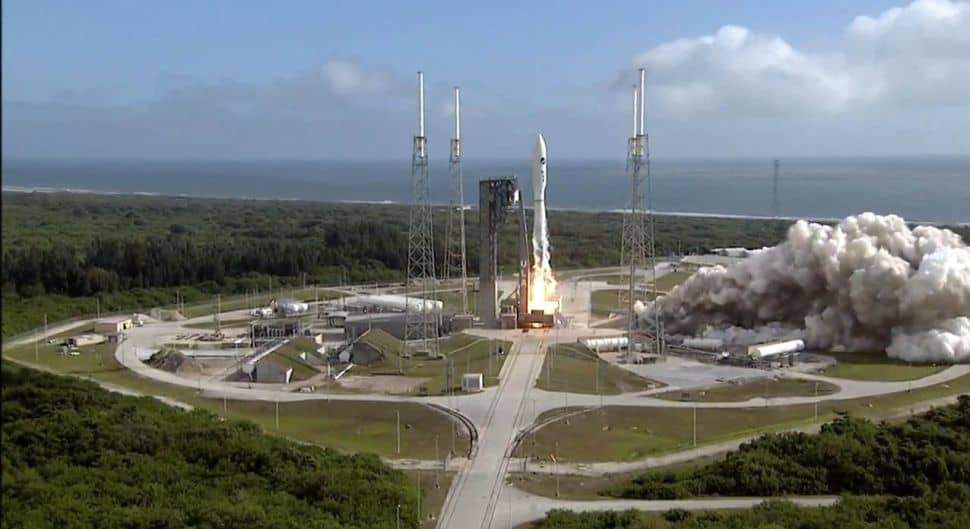X-37B’s Mysterious Mission could be an encounter with a Russian “Inspection Satellite.”

Joy Votrobek, ASCF, May 19, 2020
Sunday, May 17th, 2020, was a historic day for the new Space Force and Cape Canaveral. The crewless X-37B Orbital Test Vehicle was launched successfully on the back of the Atlas V Rocket, compliments of United Launch Alliance. NASA ended space shuttle flights in 2011, and the U.S. has relied on Russia for a lift to space every since. The U.S. government and commercial industry partnership with United Launch Alliance, Space Force, and the Air Force is a look into the future of space flights from the U.S., ending our reliance on Russia. Next week, Space-X plans to launch its first manned space launch from Cape Canaveral.
The X-37B will have numerous experiments onboard. One experiment will seek to transform solar power into a radio-frequency sent back to Earth. Another experiment will be to grow plants in space. None of which sounds too mysterious, but Sunday’s launch was called “mysterious”? Maybe because the Space Force believes that Russia has recently moved a “satellite” too close to a U.S. satellite in low earth orbit.[1] In April, the Russians tested the PL-19 Nudol, a potential “satellite killer” that can double as an anti-ballistic missile. The Russians also have “inspection satellites” in low earth orbit, capable of hijacking or destroying other satellites. In January of 2020, one of the Russian “inspection satellites” came near a U.S. spy satellite and has stayed in the same orbit.[2] Hopefully, the mystery is to put the Russian “inspection satellite” out of the U.S. orbit. A good reason to end the United States reliance on Russia and bring back our space program.
Photo: United Launch Alliance
[1]Prater, Erin (May 6, 2020) The Gazette https://gazette.com/premium/us-military-to-launch-spacecraft-from-cape-canaveral-in-may-signaling-end-of-reliance-on/article_8235be0e-8fb9-11ea-8e4d-87b4ccf6d09d.html [2] Axe, David (April 16, 2020) The National Interest. https://nationalinterest.org/blog/buzz/russia-just-tested-satellite-killer-144797



